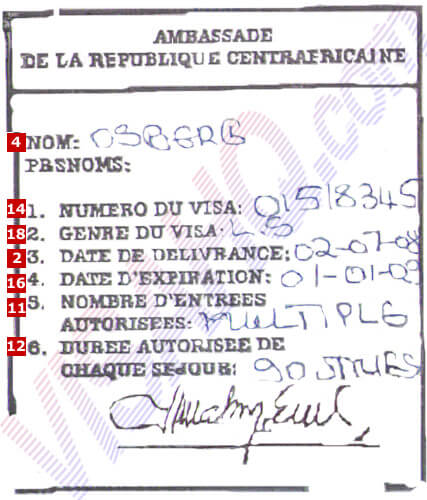Central African Republic Embassy list in Ireland
Need help?Chat with us
Why Trip Registration at the Central African Republic Embassy is Important
Registering your trip with the Central African Republic embassy is crucial for ensuring your safety while abroad. In the event of a natural disaster, political unrest, or medical emergencies, the embassy can act swiftly to provide support and resources to its citizens. For instance, during a sudden outbreak of violence or civil disturbances, registered travelers can receive timely alerts about safe evacuation routes or secure locations. Similarly, if you find yourself in a medical crisis, the embassy can play a pivotal role in facilitating access to local healthcare and connecting you with medical assistance. Furthermore, registration enhances communication, allowing the embassy to effectively track your whereabouts and offer personalized support when necessary. By taking this important step, you safeguard not just your personal safety, but also your peace of mind while traveling in uncertain circumstances.
Central African Republic Embassy FAQs
Can the Central African Republic embassy assist in legal issues abroad?
Yes, the embassy can provide guidance and assistance in legal matters, including connecting you with local legal professionals.What should I do if I lose my Central African Republic passport in Ireland?
If you lose your passport, immediately report the loss to local authorities and contact the embassy for assistance in obtaining a replacement.How do I report an emergency to the Central African Republic embassy?
You can contact the embassy during office hours by phone or email, or reach out to the emergency hotline if it is outside regular business hours.Does the embassy provide support for educational opportunities in Ireland?
Yes, the embassy can offer information on scholarships, educational programs, and other opportunities available for Central African Republic nationals in Ireland.What type of support can the embassy provide if I am detained abroad?
The embassy can provide consular assistance, including legal advice, contact with family members, and guidance on local legal processes.
Services Provided by Central African Republic Embassies in Ireland
Passport Services
- Issuance of passports
- Renewal of passports
- Lost passport replacement
Visa Issuance for Foreign Nationals
- Visa applications
- Visa extensions
- Information on visa requirements
Assistance in Legal or Medical Emergencies
- Support in legal matters
- Emergency medical assistance
- Referrals to local legal and healthcare professionals
Travel Alerts and Safety Updates
- Issuing travel advisories
- Providing safety updates for travelers
- Alerts regarding natural disasters or political unrest
Support for Nationals Detained Abroad
- Consular assistance for detained citizens
- Advice on legal representation
- Communication with family members
Summarized Diplomatic Presence
The Central African Republic maintains a diplomatic presence in Ireland primarily through its embassy, located in Dublin. This mission plays a pivotal role in fostering bilateral relations, facilitating trade, and promoting cultural exchange between the two nations. The embassy serves various functions, including providing support and protection to Central African nationals, processing consular services, and acting as a liaison with the Irish government. Through its activities, the embassy not only strengthens diplomatic ties but also enhances cooperation in various sectors, thereby contributing to the development and welfare of Central African citizens living or traveling in Ireland.
